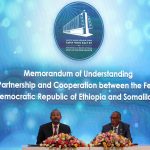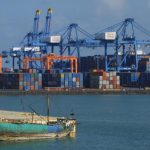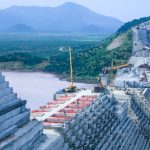Ethiopia’s Strategic Policy: An In-depth Examination
- National Security & Regional Stability:
- Border Integrity: With its diverse ethnic composition and sometimes contested borders, Ethiopia has maintained a significant focus on guarding its territorial integrity. The Ethiopian-Eritrean war (1998-2000) exemplified the gravity of such concerns.
- Regional Leadership: Being one of the most populous and historically significant nations in the region, Ethiopia sees itself as a stabilizing force in the Horn of Africa. Its active role in IGAD (Intergovernmental Authority on Development) underscores this responsibility.
- Economic Growth & Infrastructure Development:
- Agricultural Modernization: As an agrarian economy, Ethiopia has long seen the need for modernizing its agricultural sector. This involves introducing new technologies, better farming practices, and supply chain improvements.
- Industrial Parks Development: To foster industrial growth and attract foreign investment, Ethiopia has been setting up several industrial parks. These parks, focused primarily on textiles, garments, and agro-processing, aim to create millions of jobs and boost exports.
- Diversification & Self-reliance:
- Technology and Innovation: Recognizing the global shift towards tech-driven economies, Ethiopia has begun focusing on IT infrastructure and education. There’s a push towards creating a tech-savvy young generation.
- Energy Independence: With projects like GERD, Ethiopia not only aims for self-sufficiency in power but also aspires to become a significant electricity exporter in the region.
- Ethiopian Nationalism & Internal Cohesion:
- Federalism: Ethiopia’s federal structure, which grants significant autonomy to regional states based on ethnic lines, was designed to ensure representation and manage diversity. However, it has also given rise to ethnic tensions.
- Cultural Diplomacy: Events like the Meskel festival and institutions like the Ethiopian Orthodox Church play a role in nation-building, presenting a unified cultural front to both internal and external audiences.
- Strategic Diplomacy:
- Active Multilateral Participation: Beyond the African Union, Ethiopia engages actively with the United Nations and has been one of the top contributors to UN peacekeeping missions worldwide.
- Strategic Partnerships: Balancing relations with superpowers like the U.S. and China has been a key part of Ethiopia’s diplomacy. While the U.S. has been a long-term ally, China’s role as an infrastructure financier and trade partner has grown immensely in recent years.
- Climate Resilience & Green Development:
- Agricultural Adaptation: Given the climate vulnerability of its primary sector, there are efforts to develop drought-resistant crops and promote sustainable farming practices.
- Renewable Energy Push: Beyond hydroelectric power, Ethiopia has been exploring other renewable sources, such as wind and geothermal energy, aiming to capitalize on its vast potential in these areas.
- Social Sector & Inclusive Development:
- Education: Expanding access to quality education for all segments of its population is pivotal. There’s a particular emphasis on higher education and vocational training to prepare the youth for the global job market.
- Health: With the challenges posed by diseases like malaria and, more recently, COVID-19, Ethiopia has been working to improve its healthcare infrastructure, services, and outreach.
While this in-depth exploration provides a detailed understanding of Ethiopia’s strategic policy, the situation on the ground can be fluid. Political, economic, and social realities evolve, and with them, the nation’s priorities and strategies might shift. It’s always recommended to seek the most recent primary sources or expert analyses when studying such topics for current applicability.




